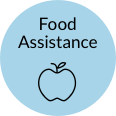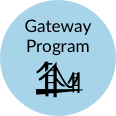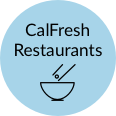Health & Community Services
Berkeley has numerous health care resources, including Alta Bates Summit Medical Center, part of the Sutter system, and LifeLong Medical Care, a network of community health centers. The ratio of primary care doctors to residents is well above the national average. Berkeley is located between Stanford and UCSF medical schools. Stanford Health Care and John Muir Health recently expanded to Berkeley. However, there remain stark health inequalities across ethnicity, income, and neighborhood that several community programs are addressing. These include access to dental care, especially for vulnerable and underserved populations. Additional care navigation and programs that de-stigmatize seeking help for mental health and other basic needs are necessary to improve the well-being of all residents
Age Friendly Resources
Public
City Senior Centers provide recreation, affordable hot meals, health & wellness education and other supportive services.
Alameda County, with federal, state, and local funding, provides personal care services that help seniors on Medi-Cal stay safely in their homes as long as possible.
The city has its own public health department, allowing a focus on local health issues residents face.
AC Care is a county program that provides complete services for those experiencing homelessness, including behavioral and physical health, housing, and legal services.
The CA Dept. of Aging Multipurpose Senior Services Program (MSSP) provides healthcare management for seniors who qualify for nursing home care and prefer to remain in their home.
A mobile van run by the City and LifeLong Medical Care helps address inequities in treatment for hypertension and heart disease in South Berkeley by connecting residents with programs, resources, and services.
Free flu shots and low-cost immunizations are available at the Ann Chandler Public Health Center.
A City public health nurse provides free health information, referrals, and education.
A Community Emergency Response Team provides education in disaster preparedness and training in basic emergency skills (Fire Department).
Berkeley Fire refers 'at-risk' seniors to City Aging Services; emergency forms posted in seniors' homes notify EMS of critical health information
Targeted case management for Medi-Cal beneficiaries is available through the city; referrals are also available through City Aging Services, Jewish Family Services, LifeLong Medical Care, and the Public Health clinic.
City injury prevention workshops and education about geriatric health concerns are available from the Berkeley FireDepartment that often respond to 9-1-1 calls from seniors.
Getting the Most Out of Life is an Alameda County Health Care Services Agency program that promotes planning for end-of-life and hospice care before a medical emergency occurs.
There is meal delivery and food assistance available through Meals on Wheels, CalFresh, Food Bank, and the Area Agency on Aging
Community Accessing Resources Effectively (CARE) is a cross disciplinary team that looks at improving care for high utilizers of emergency services.
The Health Status report is a regular City report that provides information about residents' health status.
City community health advocates visit churches, parks, and community centers to let people know about programs.
This Alameda County program, with funding from the Older Americans Act through the Area Agency on Aging, ensures residents of long-term care facilities are receiving safe, quality services.
This county program helps inform people about veteran services and assists people with claiming and maintaining benefits for which they are eligible.
Nonprofit
Lifelong Medical Care's Over 60 Health Clinic offers primary care, chronic disease management, social services, and health education specifically for seniors.
There is a drop-in clinic for checking blood pressure at LifeLong's Over 60 Health Center to address health disparity in monitoring hypertension.
Free peer workshops are organized by CIL and designed for seniors (55+) who have a newly acquired disability.
The YMCA in Berkeley offers Healthy Living Programs to help manage chronic diseases, as well as several senior aquatics, aerobics, chair exercise, and gentle yoga classes.
Alzheimer Services is a nonprofit organization that provides care services to people with dementia, support for caregivers, and education about dementia care.
Legal Assistance for Seniors (LAS), located in Oakland and serving all of Alameda County, is a nonprofit that provides legal advice, representation, and education to residents over 60.
The Center for Elders' Independence is the only wraparound service provider in Berkeley, offering medical care, transportation, adult day care, exercise classes, nutrition support, and social activities.
Lifelong Medical Care manages a support program for patients following hospital discharge
Inclusive Community Resources provides mobility training, personal assistance, and attendant management services for adults with developmental disabilities.
This center is a nonprofit organization that, along with cultural, advocacy, and social activities, offers family caregiver support for Ethiopian-American elders
LifeLong Medical Care offers Cooking Matters classes for patients in West Berkeley along with fresh produce giveaways.
Map of Healthcare Resources

There are many healthcare options along the main city corridor which runs through downtown. Stanford and John Muir Health care have both moved into South Berkeley, but there are few options available in West Berkeley. Several service providers such as Alzheimer's Services of the East Bay, CEI, and Jewish Family & Community Services are also concentrated near downtown.
Community Survey Results

Overall, subjective reports of health are good among older adults in Berkeley who responded to our survey.

There are predictable disparities in self-reported health across income and race. The graph below shows a trend similar to what is found in most studies nationally of the relationship between health, race, and financial resources. Berkeley is continuing its work on eliminating disparities.
According to the Alameda County Plan for Older Adults 2016-2017,
15.7%
of Berkeley residents over 60 have MediCal
48%
of Alameda County older residents have avoided needed medical care because of cost
39%
of older, low-income Alameda County residents are "very concerned" about being able to prepare healthy food as they get older
Take Aways
Equity and Inclusion: Most subjective health reports from residents are good to excellent; however, disparities are apparent in Berkeley along socioeconomic and racial lines. Addressing this is a priority of the City and County Public Health Departments, and more is being done. However, this may require expanding current programs, adding new ones, and implementing policy changes.
Information: Even though there are abundant healthcare resources in Berkeley and surrounding cities, care navigation, in-home care and memory care are three areas where there is a gap. Seniors who need support to stay at home often need help finding service providers but may not be able to afford services unless they qualify for Medi-Cal. Those who are just above income guidelines struggle to find affordable services. A clear source of information about these services and their affordability is needed.
Infrastructure and Policy: While Berkeley has many excellent health and community service programs, most are not large or well-funded enough to meet the increasing demand for services. Also, with the planned closure of the local hospital scheduled for 2030, the city will need to continue to work on ensuring residents have access to emergency care.
Action Plan
In Process
The City continues to work on Measure GG, which focuses on Emergency Preparedness, resilience, & community response capacity. One focus is on utilizing nurses who have relationships with vulnerable community members.
The schools continue to explore creating an inter-generational program that teaches children to cook healthy food at school so they can bring those skills home.
LIfeLong Medical Care provides in-home primary care for homebound seniors and they are expanding this program into Berkeley.
The Berkeley Continuum is piloting a prevention/intervention program that helps older adults proactively plan for their aging experience.
Year 1
Encourage Berkeley restaurants to participate in CalFresh so those who are not able to cook can buy prepared meals as an alternative to the grocery program.
Increase awareness of Alameda Country's Senior Injury Prevention Program (SIPP) by educating seniors, healthcare providers, case managers, and emergency responders about fall prevention. Ensure there is equitable access to the program.
Implement additional health related programs in senior centers and in the community, e.g., around nutrition and exercise, and walking groups. with targeted outreach to under served groups.
Convene a summit on memory care to plan a community response to dementia and related diseases
Year 2-3
Identify funding for additional geriatric case managers and community health workers for the general population and for people experiencing homelessness.
Launch a program of affordable navigators (as opposed to comprehensive care managers) to help older adults address basic system navigation needs (public benefits, housing, service referral).
Develop and implement a plan, including new funding streams, to lower costs and expand access to in-home services.
Focus efforts to recruit, train, and retain a quality workforce of home care workers and develop a centralized, easily accessible source for vetted referrals for in-home care.











































